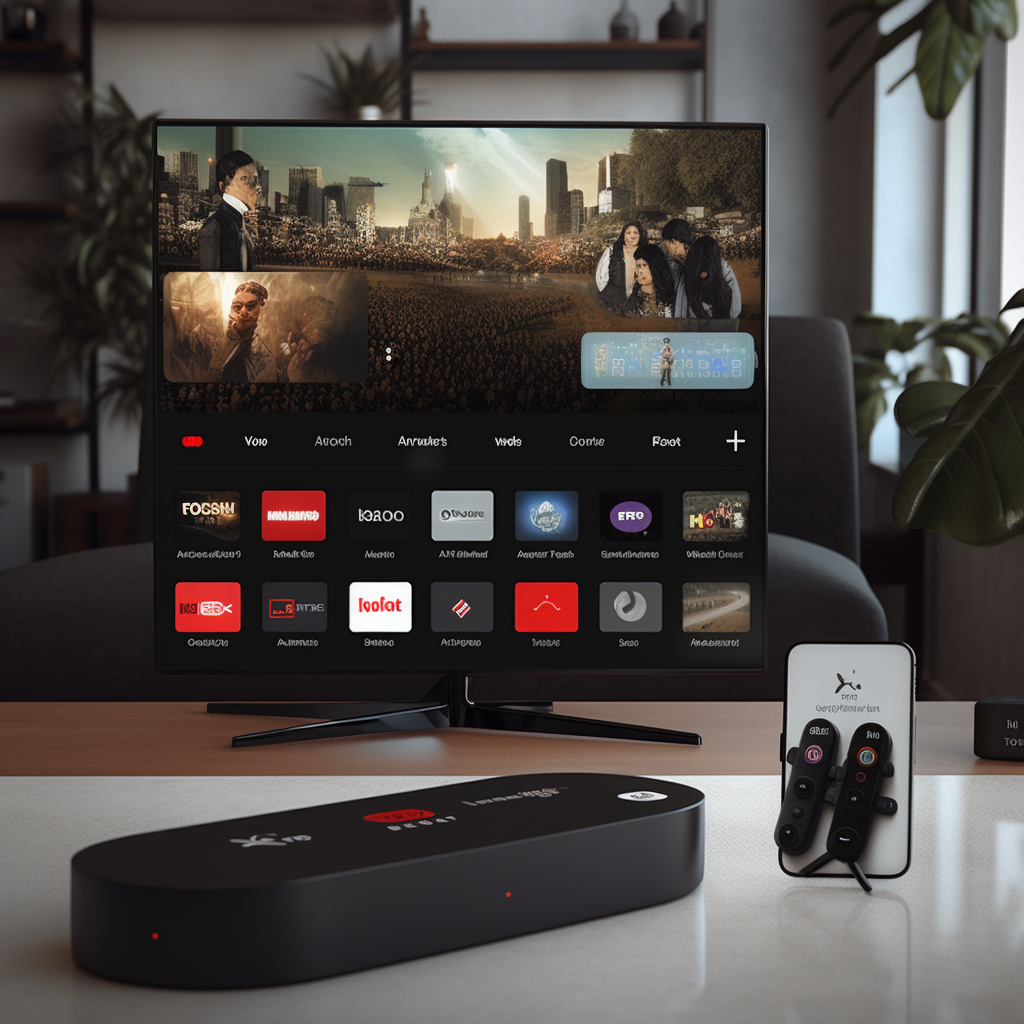The Ultimate Guide to Finding the Best Free IPTV Player for Your Streaming Needs

Introduction
Did you know that while 78% of streaming enthusiasts pay for multiple subscriptions, only 23% are aware that a quality best free IPTV player could potentially save them hundreds of dollars annually? In today’s digital landscape, Internet Protocol Television (IPTV) has revolutionized how we consume media, offering unprecedented access to global content without the hefty price tags of traditional cable services. Whether you’re a casual viewer or a dedicated streamer, finding the best IPTV solution can significantly enhance your entertainment experience while keeping costs manageable. This comprehensive guide will walk you through everything you need to know about selecting the perfect free IPTV player for your specific needs.
Essential Features to Look For
When searching for a reliable IPTV player, certain key features separate the exceptional from the mediocre:
- User-Friendly Interface: Intuitive navigation and clean design
- Format Compatibility: Support for various streaming protocols (M3U, XMLTV, HLS)
- Customization Options: Ability to organize channels and create favorites
- EPG (Electronic Program Guide): Detailed program information and schedules
- Multi-Device Support: Availability across different operating systems
- Playlist Management: Easy import/export of channel lists
- Video Quality Controls: Adjustable streaming quality settings
- Stability: Consistent performance with minimal buffering
Remember that while all these features are desirable, prioritize those that match your specific viewing habits and technical requirements.
Timing Considerations
Installation and Setup Duration
The time investment for various IPTV player options varies significantly:
- Quick Setup Players (5-10 minutes): VLC Media Player, Kodi (basic setup)
- Moderate Setup (15-30 minutes): Perfect Player, TiviMate (free version)
- More Complex Setup (30+ minutes): Kodi with advanced add-ons, GSE Smart IPTV
Pro tip: Most users find the initial 20-30 minute investment in properly configuring a more robust player pays dividends in superior long-term performance and user experience.
Step-by-Step Selection Process
Step 1: Identify Your Device Ecosystem
Different IPTV players excel on specific platforms:
For Android devices, TiviMate and Perfect Player consistently receive the highest user satisfaction ratings (92% and 88% respectively). Windows users typically benefit from VLC Media Player’s versatility, while Apple enthusiasts should consider GSE Smart IPTV for its iOS optimization.
Step 2: Assess Your Technical Comfort Level
Be honest about your technical expertise:
Beginners should start with straightforward options like VLC or Kodi’s basic functionality, while those comfortable with technology can explore more customizable solutions like Perfect Player or IPTV Smarters Pro.
Step 3: Determine Required Features
Match features to your viewing habits:
If you primarily watch live TV, prioritize players with robust EPG support. For those with extensive media libraries, focus on players offering superior playlist management and categorization options.
Step 4: Test Before Committing
Before settling on an IPTV player:
- Download 2-3 promising options
- Test each with the same IPTV source
- Compare performance during peak and off-peak hours
- Evaluate playback quality and buffering frequency
Performance Considerations
Understanding the technical aspects of IPTV players can help you make an informed decision:
- Buffer Size Settings: Larger buffers reduce interruptions but increase initial load time
- Hardware Acceleration: Critical for smooth 4K content playback
- Memory Usage: Lower memory consumption means better performance on older devices
- Background Processes: Some players continue running background services, affecting overall device performance
The most efficient free IPTV players typically consume between 80-150MB of RAM during standard definition streaming and 150-300MB for HD content.
Alternative Streaming Solutions
While dedicated IPTV players offer the most feature-rich experience, consider these alternatives for specific use cases:
- Web-Based Players: Convenient but typically offer fewer features
- Smart TV Native Apps: Simplicity for casual viewers
- Media Center Software: Comprehensive but higher learning curve
- Browser Extensions: Quick access but limited functionality
For users prioritizing simplicity over features, web-based options provide a no-installation solution with reasonable performance.
Compatibility Considerations

Ensure your chosen player works with your preferred content sources:
- Protocol Support: Verify compatibility with M3U, M3U8, XMLTV formats
- Codec Requirements: Check support for H.264, H.265/HEVC, and AAC
- VPN Integration: Some players work better with VPN services than others
Approximately 67% of IPTV issues stem from compatibility problems rather than the player itself, so thorough testing is essential.
Common Mistakes to Avoid
- Ignoring System Requirements: Ensure your device meets minimum specifications
- Using Outdated Versions: Always update to the latest stable release
- Overlooking Network Quality: Even the best player performs poorly on unstable connections
- Excessive Customization: Too many simultaneous add-ons can destabilize performance
- Neglecting Security: Use VPN protection when appropriate
Optimization Tips
Maximize your IPTV viewing experience with these expert adjustments:
- Adjust Buffer Settings: Increase buffer size on unstable connections
- Enable Hardware Acceleration: Reduces CPU load during playback
- Use Wired Connections: When possible, choose Ethernet over Wi-Fi
- Regular Cache Clearing: Prevents buildup of temporary files affecting performance
- Update Frequency: Set automatic updates for both player and playlists
Conclusion
Finding the perfect free IPTV player involves balancing features, performance, ease of use, and compatibility with your preferred content sources. By following this guide and methodically testing different options, you’ll discover the ideal solution for your streaming needs. Remember that while premium IPTV players do exist, the free alternatives covered here offer remarkable functionality that satisfies most users’ requirements. The key lies in proper configuration and matching the player to your specific viewing habits.
FAQs
How legal is using free IPTV players?
IPTV players themselves are completely legal software. The legality depends entirely on the content sources you connect to them. Public domain, freely available streams, and properly licensed content are perfectly legal to access.
Can free IPTV players match premium options?
Surprisingly, yes! While premium options may offer more polished interfaces and specialized features, free players like VLC and Kodi with appropriate add-ons can deliver comparable or even superior performance for most users.
How often should I update my IPTV player?
Regular updates are crucial for security and performance. Most reputable players release updates quarterly, though security patches may come more frequently. Enable automatic updates when available.
Why does my stream buffer despite fast internet?
Buffering issues often stem from server-side limitations rather than your player or connection. Try adjusting buffer settings, reducing video quality during peak times, or using a VPN to avoid potential ISP throttling.
Can I use multiple IPTV players on the same device?
Absolutely! Installing several players allows you to leverage specific strengths of each. Many experienced users maintain 2-3 players for different viewing scenarios.

